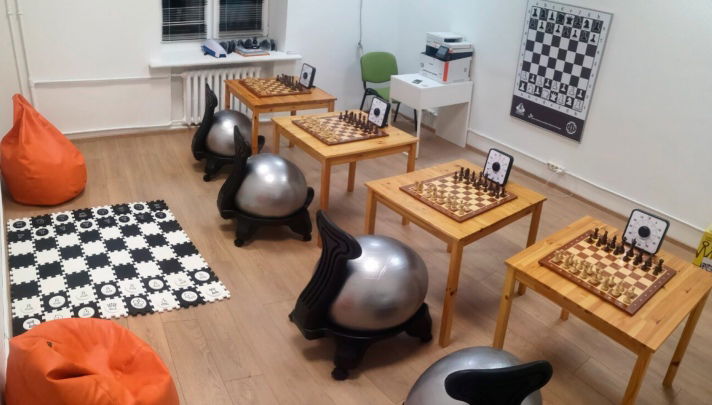Seminar on chess and autism announced
We all know by now that chess is much more than just a sport. It can be used as a tool to help the society in numerous ways and the mankind too. For the first time on 29th March 2021, FIDE together with its Commission for People with Disabilities and the Social Commission, will be holding an Introductor Seminar - "Chess for children with an autism spectrum disorder. How chess can help children with autism". Check out the article to find out more details on how to register for it. Photo: FIDE

The International Chess Federation, together with its Commission for People with Disabilities and the Social Commission, is pleased to announce the 1st FIDE Introductory Seminar "Chess for children with an autism spectrum disorder. How chess can help children with autism”.
The aim of this course is to inform Federations and FIDE Academies about opportunities for using chess in educating kids with this disorder and share the existing experience. FIDE also wants to identify the interest of Federations, provide the necessary training of teachers, and support the development of related projects.
WHAT:
At this seminar speakers will talk about the possibility of teaching chess to children with autism spectrum disorder covering the following topics:
• What is an autism spectrum disorder
• Teaching chess to someone with autism
• Chess could become the bridge between two worlds
• Role of social projects in National Chess Federations
WHEN:
29 March 2021, from 14.00 to 16:00 CET (6-8 p.m. IST)
WHO:
Moderator: Anastasia Sorokina, FIDE Vice-President
Speakers:
• Natalia Popova - WIM, FIDE Trainer, Trainer of the FIDE Chess Academy in Belarus, leader of the 2 years long project teaching chess to children with autistic spectrum disorder (Belarus).
• Ala Mishchanka, Special needs educational assistant, more than 15 years of experience (Canada);
• Līga Bērziņa, Head of the Autism Society of Latvia, developer of games for reduction of behavioural disorders (Latvia).
• Anna Charchyan, Lilit Karapetyan (Armenia)
How to register:
For registration, please send an email with the name and contact details (email, telephone number in Whatsapp) of the representative of the National Chess Federation or FIDE Academy to Anastasia Sorokina, FIDE Vice President: a.sorokina@fide.com.
We expect your registration by 22 March 2021. After registration, you will receive a link to the online seminar.

Over two years in Belarus has been operating a chess club for children with autism. Children study according to a special program developed by Natalia Popova, the coach of FIDE Chess Academy in Belarus. During this time, noticeable results have been achieved, which the parents of children can best say about:
Olga: "Studying chess influenced the fact that Tikhon, in principle, began to speak more. Make a request, express his emotions, draw conclusions. It wasn't like this before".
Victoria: "I want to say thank you to the whole team involved in teaching chess to our children! During the entire time of attending classes Vladik became more attentive, assiduous and diligent. His logical thinking develops, speech is enriched, and this can be seen not only when paying chess, but also in every day life and at school. Unfortunately, in Minsk there are very few optional classes and sections where our children are welcome and ready to work with them, so I am definitely glad that Vlad is attending chess lessons. Hopefully in September classes will return! See you!"
Irina: "Hello. We would like to say a big thank you to everyone involved in the project, which allowed us to gain knowledge and experience in such complicated game as chess. During the academic year, Dasha not only got acquainted with the game (figures, basic principles), but also began to orient herself better on the plane. In September 2019 Dasha could hardly show where the top and bottom on the sheet of paper. In May she already orientates at the intersections, shows the diagonals, the concept of vertical and horizontal has been formed and fixed. This also carried over into everyday life. This skill is useful for her educational activities. Teaching Dasha chess gave a reason and motive for communication with her peers. She gladly talks about her hobby and htis gives her some confidence in talking with peers. Once again, we want to say thank you very much and we hope that you will have the opportunity to help us in the next academic year to learn this game and get such a valuable experience of communication and learning".
Tutor Tatyana: "From myself, I can say that children really have become more sociable, learned to work in a group, to wait for their turn to ask the coach for help. Learned to accept the rules and follow them. According to my feelings, it was not for them something like torture, like school :) they came with pleasure. We learned to accept our mistakes and somehow deal with stress if something doesn't work out. Although there were tears, there were fights".
Source: FIDE





